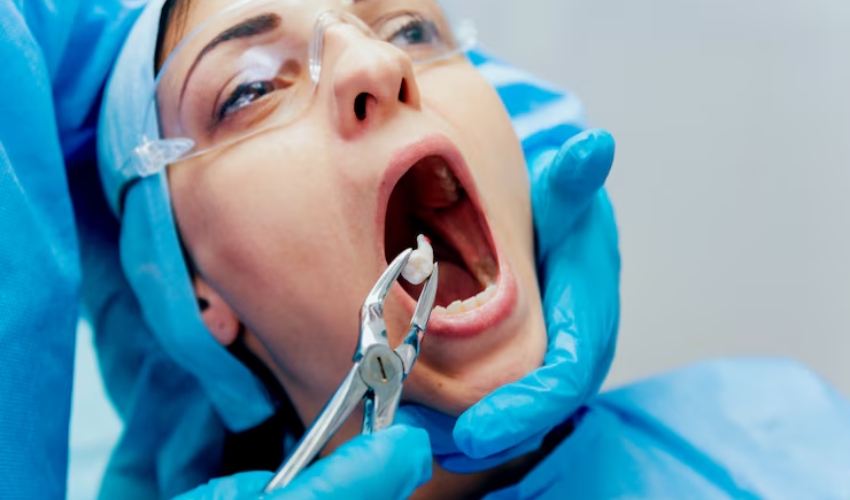What are the main health issues caused by impacted wisdom teeth?

When wisdom teeth fail to erupt correctly, they can silently create a chain reaction of oral health problems. These third molars often develop in late adolescence or early adulthood. In many cases, there isn't enough space in the jaw to accommodate them properly. As a result, they become impacted — trapped beneath the gum line or misaligned.
This impaction doesn't just cause discomfort; it sets the stage for a wide range of dental and systemic health issues. Ignoring the early signs may lead to more complex problems down the road. Let’s explore how impacted wisdom teeth can affect your health and why timely care makes all the difference.
Jaw Pain and Stiffness
Impacted wisdom teeth increase pressure in the jaw, leading to soreness and reduced mobility.
When a wisdom tooth presses against surrounding structures, it can cause inflammation in the temporomandibular joint (TMJ). This leads to chronic pain and stiffness that radiates toward the ears, temples, and neck. In severe cases, it can affect jaw function, making it hard to chew or speak comfortably.
For some, this discomfort starts subtly and worsens gradually. Over time, recurring jaw pain can reduce quality of life and increase stress, especially during meals or after waking up.
Gum Infections
Trapped molars create the perfect environment for bacteria, leading to recurring infections.
Pericoronitis is a common infection associated with impacted teeth, especially if part of the tooth breaks through the gum. The flap of gum tissue that forms around it becomes a hotspot for bacteria, food debris, and plaque. Redness, swelling, and a bad taste in the mouth often accompany this condition.
If left untreated, the infection can spread to nearby tissues or even enter the bloodstream, increasing the risk of serious complications. Painful swelling may also cause difficulty in opening the mouth fully.
Tooth Crowding and Misalignment
Impacted wisdom teeth can disrupt your natural bite and alignment.
As the wisdom tooth pushes against its neighbors, it applies unwanted pressure on the second molars and the rest of the dental arch. Over time, this can crowd your front teeth or shift them out of alignment.
People who have had orthodontic work may notice their straight smile gradually changing. This can be frustrating and costly to correct. Preventing such shifts early can save both time and expense on future treatments.
Cysts and Jawbone Damage
Impaction can lead to cyst development, weakening the jaw and damaging nearby teeth.
A fluid-filled sac, or cyst, sometimes forms around the crown of an impacted wisdom tooth. While some cysts remain small and harmless for a while, others grow and displace nearby teeth or damage jawbone tissue.
In rare but severe cases, untreated cysts may evolve into benign tumors. Surgical intervention becomes necessary at that point, and the surrounding bone may require reconstruction.
Sinus Issues
Upper wisdom teeth can impact nearby sinuses, causing chronic pressure and discomfort.
When upper molars grow sideways or upward into the sinus cavities, it can lead to sinus congestion, pain, or pressure. Headaches or a stuffy nose may follow, especially after changes in altitude.
In some cases, this contact may create small openings between the sinus and oral cavity, known as oroantral fistulas. These complications may require additional treatment from a dental or ENT specialist.
Difficulty in Cleaning and Cavities
Limited access to impacted molars increases the risk of decay and gum disease.
Wisdom teeth located far back in the mouth are harder to reach with regular brushing and flossing. Even if the tooth has partially erupted, food particles and plaque can build up around it.
This accumulation creates a breeding ground for bacteria that lead to cavities. The decay can also affect neighboring teeth, especially the second molars. Gum disease becomes a concern as inflammation persists and bacteria thrive.
Persistent Headaches
Pressure from impaction can lead to frequent headaches or migraines.
The misalignment of wisdom teeth sometimes affects the jaw joint and surrounding muscles. This tension spreads to the temples and forehead, triggering recurring headaches.
Unlike typical migraines, these headaches usually stem from muscular stress and dental compression. Treating the source — in this case, the impacted tooth — can bring long-term relief.
Swollen Lymph Nodes and Fever
Infections from impacted teeth may spread to other parts of the body.
If bacteria from an infected wisdom tooth reach the lymphatic system, it can cause lymph nodes in the neck and under the jaw to swell. Along with this, you might notice fatigue, fever, or general malaise.
These are signs your body is fighting an infection that has moved beyond the mouth. Seeking dental attention becomes critical at this stage to prevent serious complications.
Digestive Issues
Problems with chewing can lead to improper digestion and gastrointestinal stress.
Impacted teeth make it uncomfortable to chew certain foods. As a result, people may avoid fiber-rich fruits or vegetables and rely on softer, processed foods. This imbalance may lead to digestive issues such as constipation or bloating.
Incomplete chewing can also prevent the stomach from properly processing food, leading to discomfort and nutrient absorption issues over time.
Elevated Risk of Oral Cysts in Teens and Young Adults
Younger individuals are more prone to developing oral cysts from impacted molars.
Teens and people in their early twenties often experience cyst formation during active jaw growth stages. Impacted teeth disrupt this balance, especially when eruption attempts fail.
Early monitoring through dental X-rays is essential to catch potential complications before they escalate. Removal is often recommended in such cases to preserve bone structure and prevent crowding.
How Early Treatment Helps
Acting sooner reduces risks and supports long-term oral health.
Monitoring your wisdom teeth through regular dental checkups can make a huge difference. Dentists use imaging to determine whether the molars are likely to erupt properly or remain impacted.
If removal is advised, early treatment helps prevent infections, misalignment, and jaw complications. Recovery is generally smoother for younger patients, and the risk of future dental issues drops significantly.
In cases where discomfort, infection, or misalignment becomes noticeable, it's important to consult a professional. Many patients in Texas benefit from timely Wisdom Teeth Removal Fort Worth procedures that help prevent long-term complications and preserve overall dental health.
Note: IndiBlogHub features both user-submitted and editorial content. We do not verify third-party contributions. Read our Disclaimer and Privacy Policyfor details.











